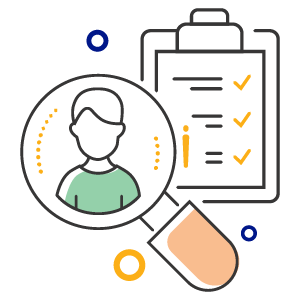Just for you: What is life insurance, and how does it work?
Posted on 18 Aug, 22 by BrightRock

Do I need life insurance? This question may have crossed your mind, now or in the past. When thinking of your family, especially those who are financially dependent on you, you may experience a certain level of uneasiness and concern, especially when considering who will look after them if you can’t work because of an illness or injury, or because you’re no longer around. Life insurance will pay you or your beneficiaries an agreed amount if you become ill, injured, or pass away. Life insurance benefits generally include cover for death, disability, and severe illness.
Ensure that your loved ones are taken care of, even when you are not around
Should it happen that you are diagnosed with a critical illness or injury, become disabled, or die, you don’t want to leave your loved ones to deal with the financial burden of finding the finances to pay for rent, groceries, transport costs, school fees, or even worse – death-bed expenses.
Having the right life insurance cover means you are protecting your family’s future. It means that if you can’t bring in the income that you and your family depend on, you’ll still be able to lead the same lifestyle. If you die, life insurance cover will pay out some money, which can then be used to pay for things like your funeral and debts.
With disability, severe illness and income protection benefits, your financial needs are taken care of with either a once-off payment or a monthly payment, if you meet the criteria for a claim. You can also take care of your children’s future education needs should you die or lose your monthly income because you become very ill or suffer an injury that leaves you disabled.
Earning a low salary or being young does not stop you from getting life insurance
Life insurance is often thought of as something you should only get when you’re older, when you have people that financially depend on you. However, even if you are young and single, it is an important thing to have. You need to make sure that your biggest asset, your future income, is covered, and this is most important for a younger person because they have so many more years ahead of them in which they would have expected to earn this income. If that income can’t be earned, for example for 40 years, how will you support yourself? Often, people who become disabled early in life become a financial burden on older parents, who are then forced to work longer. Something else to remember is that life insurance gets more expensive the older you get. The earlier you start, the healthier you’ll be when you take out the cover, and the more affordable it will be.
The future is unknown, a serious health even can happen to anyone
Unfortunately, we cannot foresee the future. If anything, this should be even more reason for you to get life insurance cover as soon as you can. A car accident, for example, is just as likely to happen to a young person, as to an older person. Such an unexpected event can result in death or even permanent or temporary disability. Aside from the physical and emotional trauma caused by these events, they also mean a loss of income.
Knowing you have a life insurance cover can help alleviate some of these worries and help you focus on your recovery, for example, if you’ve been in an accident. Life insurance pay-outs can also help with affording things that will help you recover quicker, such as a good wheelchair or a specialised prosthetic limb, through critical illness benefits.
You don’t have to work it out on your own, get the assistance of a financial adviser
The good thing about life insurance, like many other areas of our lives, is that there is support available. Seeking expert advice will help you not only navigate and plan your future but will also leave you feeling relieved that your future is being taken care of.
Insurance products can be pretty complicated. Making the wrong decision can have serious consequences for you and your family, so it’s worthwhile to shop around for the best advice. Fortunately, many well-qualified financial advisers can answer your questions, provide clear explanations, and help you understand what you’re buying. Financial advisers must meet strict regulatory requirements and be properly licensed by the Financial Sector Conduct Authority (FSCA) and product providers. You have the right to ask your adviser for their credentials and ask whether they are independent or work for a specific product provider.
If you are dissatisfied with the advice you have received, you have the right to file a complaint with the Office of the Ombud for Financial Services Providers (FAIS Ombud). For more information, visit www.faisombud.co.za
Sign me up
Speak to your adviser, or sign up to have one contact you
Fill in your details, and we’ll have an accredited financial adviser contact you.
Want us to get in touch?
Fill in your details, and we’ll call you.
Want to report suspicious online activity?
We live in a digital world where information and data can be shared across the globe in a matter of minutes. With cybercrime on the rise, we want to help ensure you’ve got the tools to keep yourself safe and informed.
Call our 24-hour helpline on 086000 6335, manned by ODEK Technologies, if you’ve received a suspicious email, text message or email involving BrightRock. You can also email us at helpdesk@odek.co.za with the details of any suspicious online activity that you’ve come across. Please be sure to include your contact details in the email. We’ll then contact you, investigate and keep you updated on what we find. ODEK Technologies is BrightRock’s ICT partner.
Learn more about how you can stay safe online.